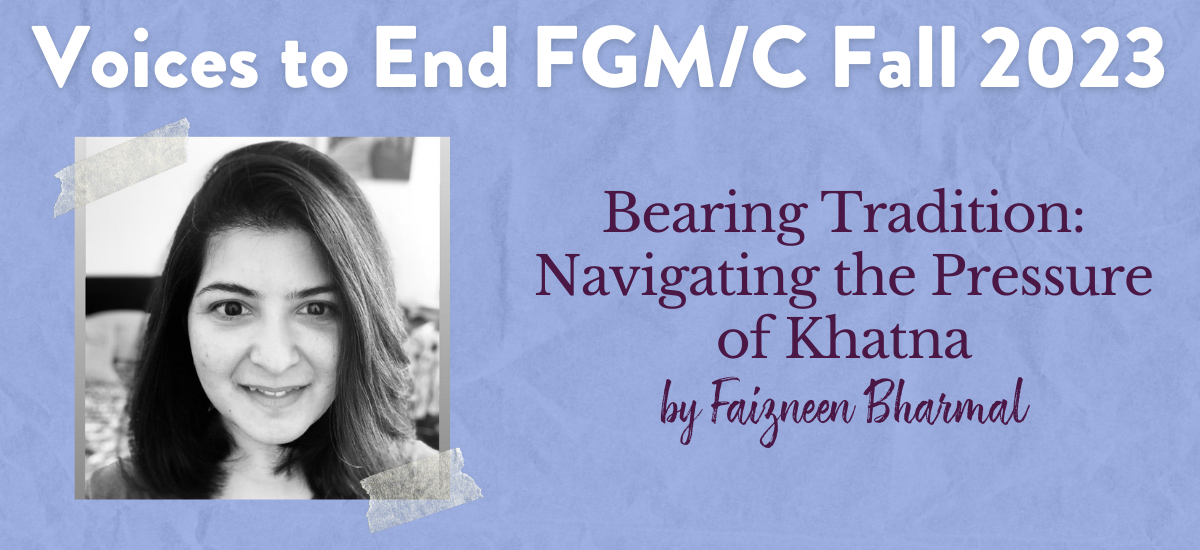
Bearing Tradition: Navigating the Pressure of Khatna
By Faizneen Bharmal
Growing up in a progressive and well-educated Dawoodi Bohra family, the topic of Khatna, commonly known as female genital mutilation/cutting (FGM/C) around the world, was always shrouded in silence. The subject was rarely broached unless one became a parent, at which point it became relevant. For the majority of my life, I remained oblivious to its existence.
Within the Dawoodi Bohra community, FGM/C Type 1 is predominantly practiced. In the majority of cases, this involves part of the prepuce or the clitoral hood being cut.
I’ve often heard rationalizations for the practice, from women in my community: “We only remove a tiny, inconsequential part. Most girls hardly even notice it.” “It’s done under the supervision of a medical practitioner, ensuring hygiene and safety.” However, my story and experience prompts me to pose some critical questions to those who persist in this harmful practice.
Does the severity of trauma a child endures become acceptable just because it involves removing a tiny part? A child who can remember when the act was performed on them? Are you so resolute in your beliefs that you’re willing to deprive your child of what they rightfully deserve? Does your religious duty and the societal pressure of community membership outweigh the lifelong trauma that a child must endure?
For far too long, Khatna, as it’s referred to in the Bohra community, remained a closely guarded secret—a taboo subject that was never up for discussion. What perplexes me is that it contradicts everything I know about my community: A community that prides itself on being educated, forward-thinking, and modern. My story isn’t merely about the personal trauma I endured, but also about the immense pressure the community exerts on each generation to uphold this tradition. A tradition, it seems, is a beast that’s not easily slain, even if it causes them to sacrifice the well-being of young girls.
When I made the decision to share my story, I engaged in a profound conversation with my mother. I’m grateful that she understood my perspective and is willing to support me in my mission to educate women of her generation and those younger so that the burden of this practice is not passed down to their daughters and daughters-in-law.
Faizneen is a communications professional with 12+ years of experience working to inspire action and meaningful engagement via content creation, storytelling, and media in humanitarian crises situations, rural transformation, public health, human rights, women’s rights, literacy, and poverty alleviation.